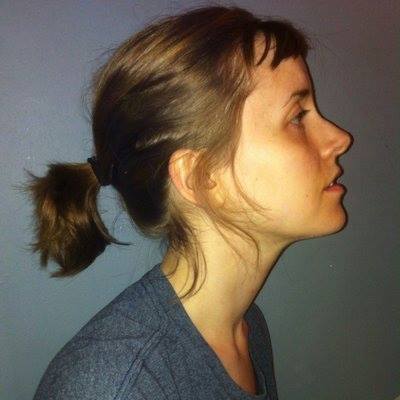My Party Trick
by Tucker Leighty-Phillips
I opened my mouth in front of the bathroom mirror to discover a tiny flame flickering on my tongue. My mouth had ached with a burning throughout the night, so I was unsurprised to see what looked like a borrower’s bonfire in the small of my maw. I tried to swallow the tiny torch but it scorched my throat as it spread and flared, so I choked it back up, kept it in place and tried to dampen it with saliva. I chugged a half-empty bottle of water on my bedroom nightstand but it was no use. Trying to remove the flame from my body felt a lot like trying to run away from my feet.
Work was harder than usual. Any time I tried to speak, the mouth-fire charred my words before they made contact with the air past my lips. Every sentence became a burnt husk, blackening out any semblance of meaning.
I’m feeling sick, I tried to say to my boss. Black smoke billowed from my lips like a loose secret.
What about Alan Thicke? She responded.
I sat at my desk and searched the internet for mouth fire symptoms, causes and cures. My phone rattled like an alarm until I unplugged the cord. A coworker walked by and said It’s a hot one out there today, ain’t it?
The fire had done a number on my teeth as well, heating them like a farmer’s branding iron until they became white-hot. I tried to eat my sandwich in the break room with gentle nibbles, but my lips sizzled and smoked when they came into contact with my incisors. Someone brought out a birthday cake for Myrtle in finance and everyone gathered around. They sang the birthday song and encouraged Myrtle to blow out the six candles they’d jammed in the white icing. The flames flailed and waved, crying as Myrtle took a deep-chested puff inwards and out towards the cake. I watched as the flames suffocated and died out, and I felt a heavy growing in my own chest, cinnamon-red anger simmering towards Myrtle and whoever had made the decision to put those candles there in the first place. What use is a fire if you won’t let it burn, I thought. I squeezed my sandwich so tightly that it nearly fell apart, the bread smushed, mustard seeping through the top and out the sides, dripping into my palms. I set it down and took a couple deep breaths. Myrtle stared at me open-mouthed with a party hat on her head.
I sent my boss an email saying I needed to take the afternoon off.
The fire was so engulfing, it started to feel like a curse. Although my previous experiences with curses had been rudimentary, just a hex back in high school, I knew that many of them were monogamous, only attaching themselves to a single person at a time, so I figured I’d try to pass it on. Who’d passed it to me in the first place, I wondered.
I went to a bar, not my regular bar, but a buffalo wing sports bar, a place where a drifter could find another drifter and make quick work of one another. Finding a man was easy. I watched a football game on television and waited for the first one to ask who I was rooting for. I’d let them fate themselves.
The Texans, I said. He misheard me. The man bought two shots, and when I drank mine flame burst from my lips like a great sneeze. He laughed and called it my party trick. He bought another round. The smoke alarms screeched as I drank. He loved it, I loved it, the way my tiny flame grew massive. It wasn’t long before we were back at his, some sad room devoid of passion, a white wall peppered with mishaps and a white mattress hugging the floor. God, to live without primary colors.
When he kissed me, he caught fire. He’d tried to smother the flame with his wet tongue but it failed, blistering as it retreated from my mouth and back into his own. The smoke from his body tinted the walls and the smell of burnt hair wafted like a ghost through the hallway. I considered the hallway fire alarm for a moment, but left without any showing of mercy.
At home, I opened my mouth into the mirror again and watched my flame pulse and sway like a small heartbeat. I couldn’t stop wondering what else in the world was flammable. There I was, pressing my index finger to my tongue like I was ringing a doorbell, the small blaze singeing my skin until I removed it. I closed my jaw and smiled, curling my sizzled black lips into a gaping curve like the Cheshire Cat. I blew my reflection a cherry-red kiss and swallowed deeply, letting the fire trickle into my chest where it heated my ribs like hot metal. I figured I’d go back to the bar for another drink.
About the Author:
Tucker Leighty-Phillips is an MFA candidate in Fiction at Arizona State University, where he is currently the Managing Editor for Hayden's Ferry Review. His work has appeared at Smokelong Quarterly, Hobart, Whiskeypaper, and elsewhere. He can be found on social media at @TheNurtureBoy.
About Weekly Flash Prose and Prose Poetry:
CutBank Online features one work of flash prose or prose poetry every Monday. Submissions are free and open year-round. Send us your best work of 750 words or less at https://cutbank.submittable.com/submit.











![IMG_0001[2].jpg](https://images.squarespace-cdn.com/content/v1/5577a12ae4b053a499f459d5/1554158397021-B926EDUG8G7TXDC5S7QY/IMG_0001%5B2%5D.jpg)













